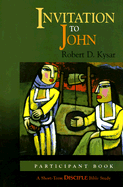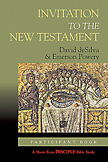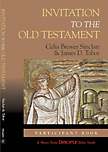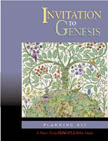|
|
Bible Study
BECOMING DISCIPLES THROUGH BIBLE STUDY is the foundation of the DISCIPLE Bible Study program. All of these programs have been offered in the past and will be offered in the future. All new students must complete DISCIPLE I before taking any of the other studies. DISCIPLE I gives the student the bibical brackground needed in the other studies.
DISCIPLE I assumes that the bible is the key to renewal in the church. It recognizes the human-divine nature of the Bible: The actual texts of Scripture were written by human beings like ourselves in their cultural settings, under the divine inspiration of God.
 DISCIPLE affirms that the canon was formed as it is in order for God to speak to us. BECOMING DISCIPLES THROUGH BIBLE STUDY gives equal time to both the Old and New Testament, emphasizing the wholeness of the Bible as the revelation of God. DISCIPLE aims at transformation, not just information, and calls on persons to submit themselves to examination by Scripture, to put themselves under the power of God’s Word, and to be changed by God’s Word. DISCIPLE invites persons to bring their experiences and struggles to the Scripture. All persons know something is amiss with their existence and yearn for the Word from God.
BECOMING DISCIPLES THROUGH BIBLE STUDY uses biblical language and images and draws upon the work of scholars to aid understanding of the Bible.
REMEMBER WHO YOU ARE is prepared for those who have completed BECOMING DISCIPLES THROUGH BIBLE STUDY. Resident in the title is the driving idea in this study--the connection between memory and identity as the people of God. The word You in the title is meant to be heard both in its singular form (the individual) and in its plural form (the community). We are a community of memory. Participants in this thirty-two-week study will read the major and minor Old Testament prophets, with the exception  of Daniel, and will read the thirteen letters traditionally attributed to Paul. To establish the historical context in which the prophets spoke for God, daily reading assignments also draw on the books of Deuteronomy through Chronicles. Study of the prophets will follow their historical sequence rather than their biblical sequence. The dating of Paul’s letters influences the sequence of their study.
Several themes weave their way through the study: the call to remember, the call to repentance, the need for renewed vision (eyes to see, ears to hear), and the place of community. REMEMBER WHO YOU ARE concentrates on the Old Testament prophets and the letters of Paul. The prophets and Paul are continually calling hearers and readers back to their God and to a sense of who they are as a people “set apart.” The prophets and the community cannot be separated. The prophets spoke for God, out of the community, and to the community. Paul’s experience of the risen Lord, his relationship to the community he addressed, his Jewish traditions, and the Greco-Roman culture of his day merged in his writing of the letters. Paul used the language of his culture to carry the message that arose out of his roots in the Hebrew Scriptures and Judaism.
INTO THE WORD INTO THE WORLD encourages persons to open themselves to hearing what God has to say to them through the Bible and to be guided into service in the world by Scripture and their study of it.
 This thirty-two-week study selects specific portions of Scripture and delves deeper into them. Depth study of Scripture will be the work both of individual members and of the group in its weekly meeting. Equal attention is given to both the Old and New Testament with concentration on four books: Genesis, Exodus, Luke, and Acts (eight lessons on each book). Appropriate connections are made to other parts of Scripture both through reading and study assignments and through commentary in the study manual. Participants will read familiar passages, see them in fresh ways, and anticipate that God will speak through them.
UNDER THE TREE OF LIFE is a thirty-two-week study prepared for graduates of BECOMING DISCIPLES THROUGH BIBLE STUDY. The word Under in the title is meant to convey invitation, welcome, sheltering, security, and rest--home at last.
The Hebrew version of what Christians call the Old Testament has three divisions: Torah (the first five books of the Bible), the Prophets, and the Writings. The Writings  include all the books that are not part of the Torah or the Prophets.
UNDER THE TREE OF LIFE concentrates on the writings in the Old Testament – Ruth, 1 and 2 Chronicles, Ezra, Nehemiah, Esther, Job, Psalms, Proverbs, Ecclesiastes, Song of Solomon, Lamentations, and Daniel. New Testament Scriptures include the Gospel of John; 1, 2, and 3 John; James; Jude; and Revelation.
JESUS IN THE GOSPELS invites believers to look at Jesus in each of the four Gospels and ask the question, "Who is the Jesus that you see?" This study will deepen discipleship through better understanding of the biblical texts and their message.
Two questions frame this study: "Who is the Jesus you bring with you to this study?" and "Who is the Jesus you take with you from this study?" JESUS IN THE GOSPELS takes participants on a journey from one question to the other.
 While distinct in format and approach, this Bible study builds on the foundation and carries forward the philosophy and ideals that shaped DISCIPLE—high-commitment, long-term, disciplined study that fosters community and builds toward transformation. JESUS IN THE GOSPELS is different from DISCIPLE Bible study in its approach to Scripture; it looks more closely at the Gospel texts, in the kind of daily preparation and study required of the participants, in lesson layout and design, and in the nature of the study and discussion that takes place in the weekly group meeting.
JESUS IN THE GOSPELS focuses on the portraits of Jesus found in the four Gospels--Matthew, Mark, Luke, and John. The word in used in the title signals that this study takes an approach different from the familiar "life and teaching of Jesus" approach of reading stories and accounts of what Jesus said and did in order to draw conclusions about their meaning and about who Jesus was. This study looks at the way each Gospel writer presents events and teachings and at the picture of Jesus that emerges in each of the Gospels.
 CHRISTIAN BELIEVER CHRISTIAN BELIEVER assumes that most people--though faithful followers of Jesus they intend to be--know little of the content of the central teachings of the Christian faith and its ties to Scripture. But they want to know. They want to know what is at stake in what the church teaches and how it makes a difference in their own lives, what it means to be Christian, and where we as Christians stand. CHRISTIAN BELIEVER aims at addressing the uncertainty about the substance of the Christian faith and the connection between believing and living.
CHRISTIAN BELIEVER assumes that participants are already followers of Jesus and that they come to study to understand the faith they already have. CHRISTIAN BELIEVER emphasizes the head as well as the heart. This study recognizes that Christians say the creeds without understanding everything, or even assenting to everything in them, because in saying them they identify with the people and the tradition shaped by the confessions. They recognize that “faith seeking understanding” is a part of Christian experience. CHRISTIAN BELIEVER allows space for questions, doubts, and dissent.
The goal of CHRISTIAN BELIEVER is to make available to people the substance of the Christian faith that the church has confessed as a way of connecting to God and living faithfully. This thirty-week study of the classical doctrines of the Christian faith aims at presenting, explaining, and interpreting Christian doctrine as the basic teaching of the church to the end that informed believing leads to committed discipleship.
Coming to faithful understanding of the teaching of Christianity through CHRISTIAN BELIEVER begins with disciplined daily reading of Scripture and of the writings of early and modern church leaders. The process of understanding continues in weekly group discussion about the relation of Scripture, beliefs, and daily living.
CHRISTIAN BELIEVER brings in history as it illumines themes and topics, but it is not a course in church history. Historical voices are heard in selections from the writings of early and later church leaders and in documents arising out of church councils that dealt with questions, conflicts, and controversies about what constituted Christian teaching. Participants in CHRISTIAN BELIEVER will gain a sense that Christians before us have wrestled with some of the same issues of belief that Christians wrestle with today.
CHRISTIAN BELIEVER emphasizes the relationship of worship, belief, and daily life. The beliefs of the Christian community, taught within the Christian community, equip the Christian community for living faithfully and for passing on the faith entrusted to it.
SHORT TERM BIBLE STUDIES
The following short term Bible Studies have not been offered in our Church but will be in the Fall of this year. The length of each study can be determined by looking at the study contents. Each study contest is one week.
Invitation to Psalms
 The human emotions expressed in the Book of Psalms rise to peaks of joy and descend into valleys of despair. In the Psalms, the promise of the reign of God meets the historical experience of God's people. Faith in God's faithfulness collides with human experiences of pain and suffering, enslavement, oppression, and exile. God's people--given voice in the Psalms--struggle to make sense of who God is and who they are, and in so doing they have composed a collection of moving testimonies of grace, glory, sorrow, and beauty unmatched in sacred literature. For students of the Psalms today, this study offers greater understanding of how these ancient texts of praise, lament, worship, and prayer can still speak to us and for us.
Author
Michael Jinkins is an ordained Minister of Word and Sacrament in the Presbyterian Church (USA). He is the author of eleven books, including In the House of the Lord: Inhabiting the Psalms of Lament, Invitation to Theology, and Letters to New Pastors.
Study Contents
1. Word of God, Words of Prayer
2. The Prayerbook of God's People
3. Praying the Psalms
4. The Language of the Heart
5. The Geography of the Imagination
6. A Theology of the Imagination
7. Lament and Praise
8. Grace and Repentance
9. Love and Wrath
10. Hallelujah and Amen
Invitation to John
 In its wisdom, the early church chose to keep four Gospel accounts of the life, ministry, death, and resurrection of Jesus. Three of these Gospels are very similar to each other in both what they tell about the story of Jesus and how they tell it. However, the Gospel of John stands apart. In it, we find Jesus speaking not in parables but in lengthy discourses. We overhear Jesus talking with Nicodemus, a Samaritan woman, and Mary Magdalene. We marvel at Jesus turning water into wine, calling Lazarus from the tomb, and washing his disciples’ feet. We linger over Jesus’ great promises: “For God so loved the world.…” “I am the bread of life.…” “I am the resurrection.…” “Peace I leave with you.…” In the very first chapter of John’s Gospel, Jesus issues two invitations: “Come and see,” and “Follow me.” They echo the invitations of this study: to come and see this Jesus—to hear him speak, to see his signs—and to consider anew what it means to be his followers.
This eleven-week study includes a participant book outlining daily reading assignments for group preparations, a leader guide suggesting discussion activities for use in the 60–90-minute weekly meeting, and a video component providing interpretation and context for the biblical texts.
The video segments welcome the participant into the study of John. The first segment each week presents a portion of the week's scripture read against a background of classic and contemporary art depicting the story. The second video segment presents an interviewer and scholar discussing the text in an informal and accessible exchange, followed by an onscreen small group who consider the questions of the week. Video presenters include Susan Hylen, Jaime Clark-Soles, Ben Witherington and Craig Koestler.
Author
Robert D. Kysar, Bandy Professor Emeritus of Preaching and New Testament, Candler School of Theology, is a noted scholar on the Gospel of John. He has authored numerous articles and books, including a revised edition of John: The Maverick Gospel, Preaching John, and most recently Voyages With John: Charting the Fourth Gospel.
Study Contents
1. Come and See (John 1–2)
2. How Is It Possible? (John 3–4)
3. Taste for Yourself (John 5–6)
4. To Believe or Not to Believe (John 7–8)
5. Are We Blind? (John 9–10)
6. I Couldn’t Believe My Eyes! (John 11–12)
7. Would You Believe It? (John 13–14)
8. What Time Is It? (John 15–16)
9. Look Out! (John 17–18)
10. Believing Without Seeing (John 19–20)
11. Do You See Him? (John 21)
Invitation to the New Testament
 Using Matthew's Gospel as a starting point, this study explores how the new Testament writers and the early Christian community wrestled with the coming of Jesus--his life, actions, mission, death, and resurrection--and the implications of his arrival for their lives and their communities of faith. Moving through the Gospel of Matthew sequentially, the overarching themes from this story of Jesus provide the conversation topics for each of the eight sessions. Each theme is then traced through other related passages in the New Testament.
Who is Jesus and what is his significance for our lives? Participants are invited to join this conversation, to study afresh this story of Jesus, and to learn more about their calling to discipleship and to community.
Study Contents
1. Jesus Calls Us Into God's Redemption Story
2. Jesus Calls Us to a Transformed Life
3. Jesus Calls Us to Minister to a Hostile World
4. Jesus Calls Us to Complex Communities of Faith
5. Jesus Calls Us to Serve One Another
6. Jesus Calls Us to a New Relationship With Tradition
7. Jesus Calls Us to Live in Light of His Coming Again
8. Jesus Calls Us to Experience the Gifts of His Dying and Rising
Authors
David deSilva Ashland, OH.- Professor of New Testament and Greek at Ashland Theological Seminary in
Emerson Powery - Chair of the Department of Theology and Associate Professor of New Testament and Christian Origins at Lee University in Cleveland, TN.
In addition to the authors, video segments feature these scholars:
Amy-Jill Levine - E. Rhodes and Leona B. Carpenter Professor of New Testament Studies at Vanderbilt University Divinity School IN Nashville, TN.
Bishop William Willimon - Bishop of the Birmingham Area, Southeastern Jurisdiction, of The United Methodist Church.
K. K. Yeo - Henry R. Kendall Associate Professor of New Testament at Garrett-Evangelical Theological Seminary in Evanston, IL.
Invitation to the Old Testament
 This study approaches the study of Hebrew Scriptures by inviting participants to hear the story of God and God's calling of the people of Israel through the many "voices" of the biblical text. Narrative, poem, history, and prophetic utterance all have their own distinctive characteristics and purpose, arising out of a particular historical, social, and cultural setting. To understand fully the story of God's covenantal relationship with Israel calls for listening to these various ways the story is told throughout the Old Testament.
What does it mean to be God's chosen people? And how does the story of Israel's covenant with God inform our own identity as heirs of that covenant? Through this study, participants will be invited to listen afresh to the witness of the Old Testament to hear God's call and purpose for their own lives and respond to that call.
Study Contents
1. The Making of the Hebrew Bible
2. The Creation Story of Israel
3. Out of Bondage
4. Promise and Problem in the Land
5. Israel Has a King
6. Division and the Rise of Prophecy
7. Exile and Response
8. Restoration and Renewal
Authors
James D. Tabor - Professor of Christian Origins and Chair of the Department of Religious Studies at the University of North Carolina at Charlotte.
Celia Brewer Sinclair - Lecturer in the Department of Religious Studies at the University of North Carolina at Charlotte.
In addition to the authors, video segments feature these scholars:
Pete Enns - Associate Professor of Old Testament at Westminster Theological Seminary in Glenside, PA.
Julia M. O'Brien - Paul and Grace L. Stern Professor of Old Testament at Lancaster Theological Seminary in Lancaster, PA.
Invitation to Genesis
 “In the beginning . . .” These first words in Genesis may be among the most familiar words in all the Bible. Many readers of the Bible recognize Genesis as a book that describes the beginning of all things: the Creation. This is certainly true but is only part of the story—the creation of the world only takes up the first two chapters of a fifty-chapter book. What are the other chapters about?
This study approaches the Book of Genesis not simply as a story of the beginning but as a story of beginnings from start to finish. Through the study, participants will be invited to listen afresh to the witness of this opening book of the Hebrew Bible and to understand more clearly God’s purpose in beginning to form a people with the likes of Adam and Eve, Abraham and Sarah, and Jacob and Esau.
Study Contents Israel
9. The Trek into Egypt
10. An End and Another Beginning: Israel’s Story
Author
Pete Enns - Professor of Old Testament and Biblical Hermeneutics at Westminster Theological Seminary in Glenside, PA
1. The Beginning . . . and What Went Wrong
2. Another Beginning: The Flood . . . and What Went Wrong
3. Another Beginning: Abraham and the Patriarchs
4. Abraham and a Glimpse to the Future
5. The Promise Fulfilled: Isaac
6. Another Beginning: Jacob and the Uneasy Birth of a People
7. Jacob: The Struggle Continues
8. Another New Beginning: Joseph and the Family of
Invitation to Romans
 It is difficult to overstate the importance of Romans in Christian tradition. Some of the great formers and re-formers of church teaching were themselves formed by their reading of Romans. As a result, Paul’s teachings in Romans come to us mediated through the history of the church’s interpretations of his letter.
The challenge of reading Romans, then, is to learn to have our own interpretive conversation with the text itself, in spite of centuries of commentary on the text. One of the aims of this study is to invite us into conversation around several key themes: (1) Paul’s emphasis on communal salvation; (2) the centrality of God’s righteousness; and (3) the relationship between Jews and Gentiles and the relationship of both to God.
Study Contents Israel and the Nations
8. Love and Humility Are the Making of God’s Kingdom
AuthorDenver, CO.
In addition to the author, video segments feature these scholars:Wake Forest University, Winston-Salem, NC.
Mark Reasoner - Associate Professor of Biblical and Theological Studies, the Department of Religious Studies at Bethel University at St. Paul, MN.
Michael E. Williams - Senior Pastor, First United Methodist Church, Hendersonville, TN, and Series Editor for The Storyteller’s Companion to the Bible.
Bill J. Leonard - Dean and Professor of Church History, The Divinity School at
Pamela M. Eisenbaum - Associate Professor of Biblical Studies and Christian Origins at the Iliff School of Theology in
1. An Orientation to Romans
2. The Righteousness of God and the Faith of Jesus
3. Abraham, Father of All
4. Christ, the New Adam
5. Sin, Law, and Grace
6. Divine Purpose and Human Responsibility
7. The Salvation of
|
|